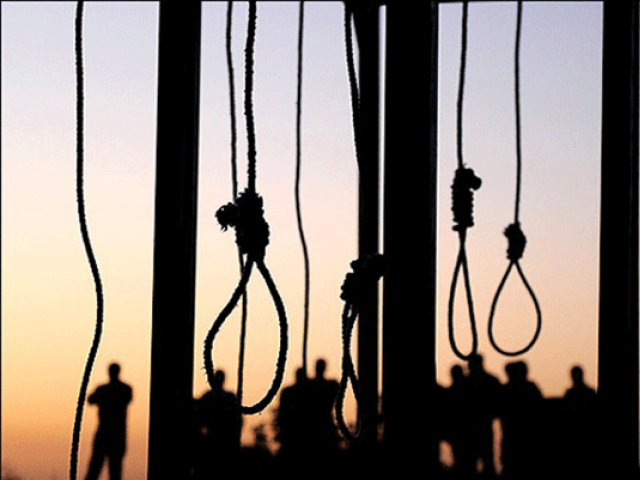Since lifting of moratorium: 353 convicts hanged since Dec 2014, SC told
Government says 38 mercy petitions still pending.

Government says 38 mercy petitions still pending. PHOTO: FILE
The federal government on Tuesday informed the top court that 353 death-row prisoners have been hanged in the country after the lifting of moratorium on capital punishment in the wake of a massacre of schoolchildren by terrorists in December 2014.
Deputy Attorney General Sajid Ilyas Bhatti on Tuesday submitted a one-page response before a three-judge bench of the SC headed by Justice Ejaz Afzal Khan in response to its query regarding status of mercy petitions.
The reply said 444 mercy petitions had been rejected by the president from December 2014 to February 25, 2016. “38 petitions were still pending before the Interior Ministry while 33 were under process. The provinces have, however, not submitted any details of death row prisoners,” it said.

The bench was hearing a petition filed by Barrister Zafarullah, who had requested the SC to convert sentence of death row prisoners into life imprisonment.
During the hearing, Barrister Zafarullah said no one could be given double sentences for one offence, adding that the SC’s five-judge larger bench had already declared that if a death row prisoner had spent a life sentence then he could not be executed.
However, the bench said the matter differed from case to case.
In response to the counsel’s request to form a larger bench the court remarked that only the CJP could constitute a larger bench.
Last year, the SC – while dismissing a plea of the same petitioner against the abolition of the death penalty – observed that the right to life and liberty is not absolute in nature and that such a right is circumscribed and subject to law
Authoring the judgment, Justice Mian Saqib Nisar observed that “the court has made clear that the right to life and liberty is not absolute in nature and a person cannot be bereft of his life and liberty except in accordance with the law,” adding that a person could be deprived of his life and liberty, if it was provided and prescribed by any law in view of the Constitution’s Article 4 (2) (a).
The judgment said the petitioner had failed to show that on the basis of two constitutional clauses, the top court, while exercising its jurisdiction in terms of Article 184 (3) of the Constitution, could direct the abolition of the death penalty in Pakistan and annul any law.
Regarding the petitioner’s argument that Article 9 is not a properly worded article and parliament should make necessary amendment, the judgment said the top court while exercising the instant jurisdiction does not deem it appropriate to issue such direction.
Published in The Express Tribune, March 23rd, 2016.



















COMMENTS
Comments are moderated and generally will be posted if they are on-topic and not abusive.
For more information, please see our Comments FAQ